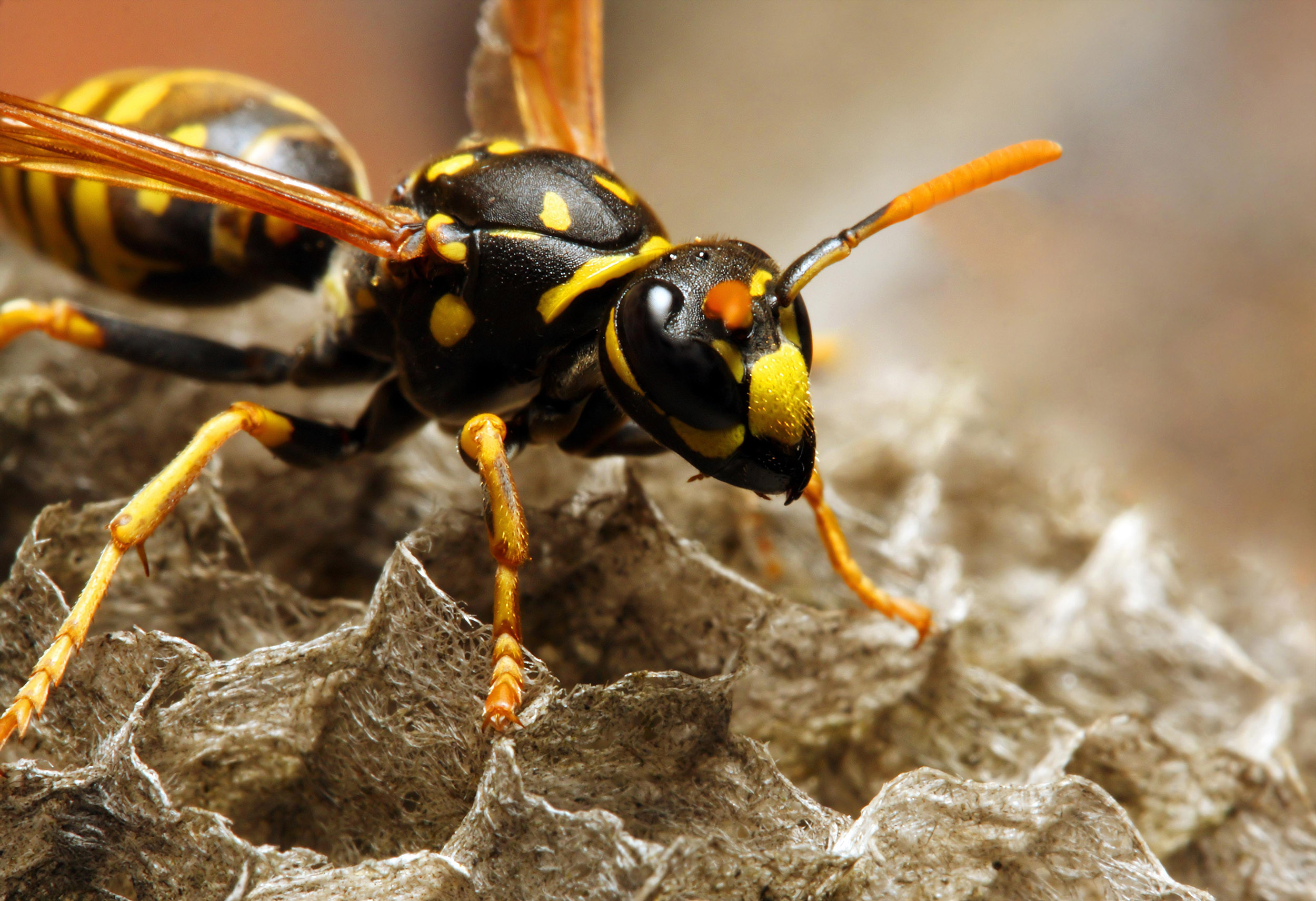Yellowjackets are some of the most troublesome insects in existence. Sometimes called hornets, these short black-and-yellow (or sometimes white), pack a fiery sting that seems way out of proportion to their size.
Females usually over-winter in protected outdoor locations; that means they’re looking for cold-weather shelter right now. They begin new colonies every spring. Colonies may be underground, within voids in walls, or inside man-made structures such as sheds and old cars. They are also known to build in dense shrubs and other vegetation.
Their honeycomb-shaped nests are made of paper produced inside their bodies. Unlike bees, nests don’t contain pollen or honey: only larvae. An outer shell protects the developing brood.
By early autumn colonies can host upwards of 4,000 workers. Left undisturbed, nests often grow to the size of a football. Under extraordinary circumstances, they can exist more than a year and grow to enormous size.
Larvae eat meat and carbohydrate-rich foods brought in by workers. In this regard, yellowjackets are actually helpful! To provide food, workers kill garden-damaging pests like caterpillars and beetles.
Many flying insects will sting when threatened, but yellowjackets don’t seem to care. They often attack without provocation. Even worse, they are equipped to bite a target multiple times. Wasps, hornets, mud daubers and bees lose their stingers when they attack. Yellowjackets don’t!
If that’s not enough, they usually bite your flesh with pincers to obtain a better grip for jabbing their venom-laden stinger into your skin. That’s a “two-for-one special” you don’t want!
Insect stings are serious business*. Bites send more than half-a-million people the the emergency room every year. Although most will soon be gone, fall is a particularly dangerous time to encounter a yellowjacket, as they’re busy preparing their queen to survive the winter. Now more than ever they really don’t want to be bothered.
We encourage you to follow these tips for avoiding stinging insects…especially yellowjackets:
- Wear shoes when outdoors, particularly in grassy areas.
- Keep screens on windows and doors.
- Seal garbage in receptacles.
- Don’t swat at a stinging insect…they’ll most likely react aggressively.
- Seek immediate medical attention if stung, as your body can react severely.
When you need help getting rid of pests around your home or business, we’re just a call or text away. Contact us at 405-679-8729 for a fast, professional response.



